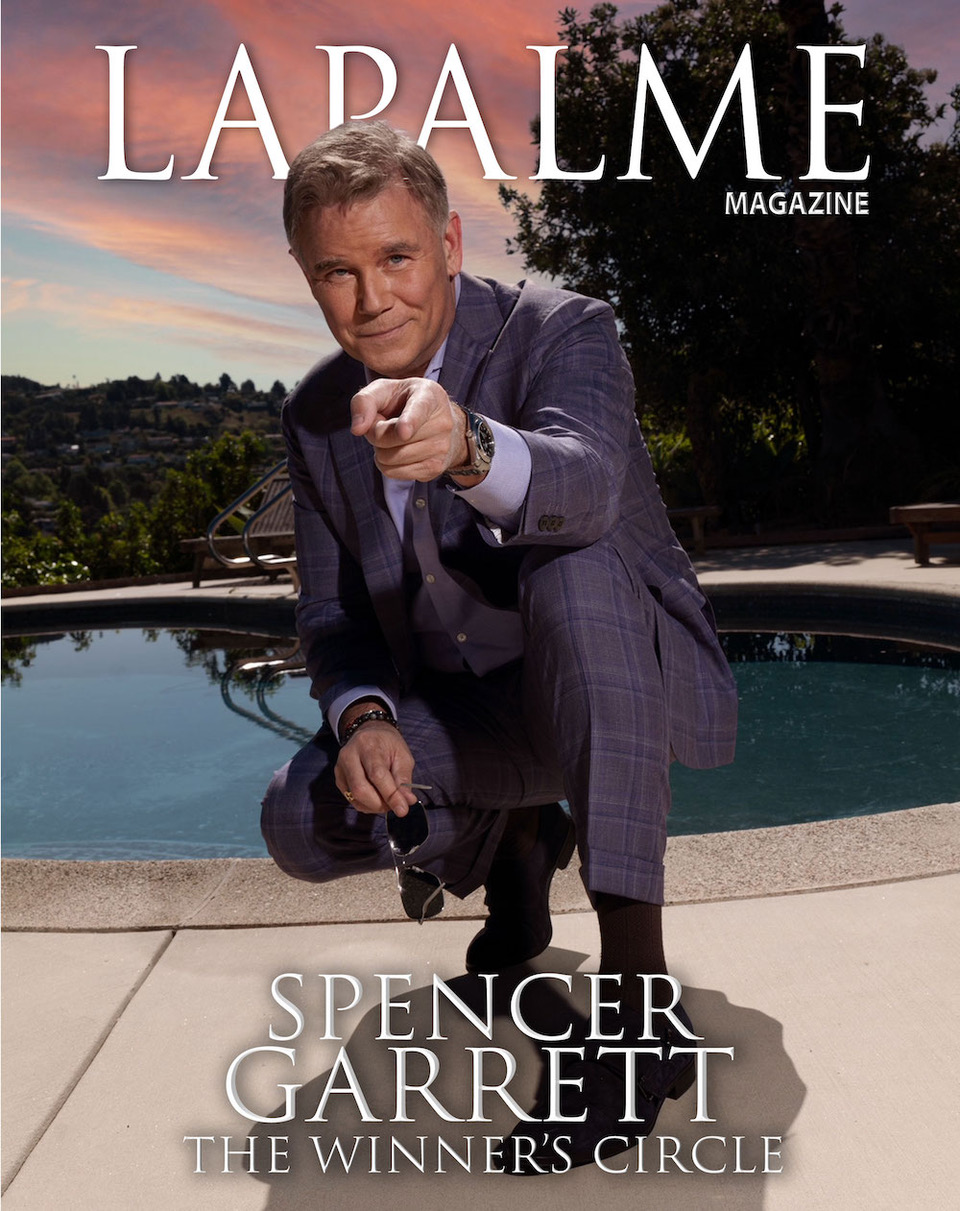
Lapalme magazine recently had the opportunity to sit down with third-generation actor Spencer Garrett, a Hollywood veteran with an extensive career spanning over 30 years in television, film, and theatre.
Spencer currently stars as the legendary Laker’s announcer Chick Hearn in the hit HBO original series “Winning Time: The Rise of the Lakers Dynasty.” A role that he calls one of his most memorable career milestones.

Christopher:
How did you prepare for the iconic role of Chick Hearn?
Spencer:
I prepared by watching hundreds of hours of YouTube videos. We shot the pilot about two and a half years ago. As soon as I got the job, I went right into research mode. I watched every video, sound bite, and every clip of him that I could find. Just to get his voice and mannerisms down. Because I knew I would be talking a lot. I was trying to get his vocal patterns and his cadences down. Fortunately, there’s a great wealth of clips on him on YouTube. I spent countless hours just watching old Lakers games and listening to his radio recordings to get his essence essentially.
Christopher:
What has been your biggest challenge taking on this role?
Spencer:
The biggest challenge is the enormous amount of dialogue that Chick has. You’re calling a basketball game, and the writers will give you pages and pages of dialogue as you watch these players running up and down the court. I don’t know how Chick Hearn himself did it. He called 3,338 basketball games over 41 years without missing a beat, so it’s a lot to live up to. So, the challenge was to be able to talk consistently for long stretches of time. Without losing my voice, it was a heck of a lot of fun.
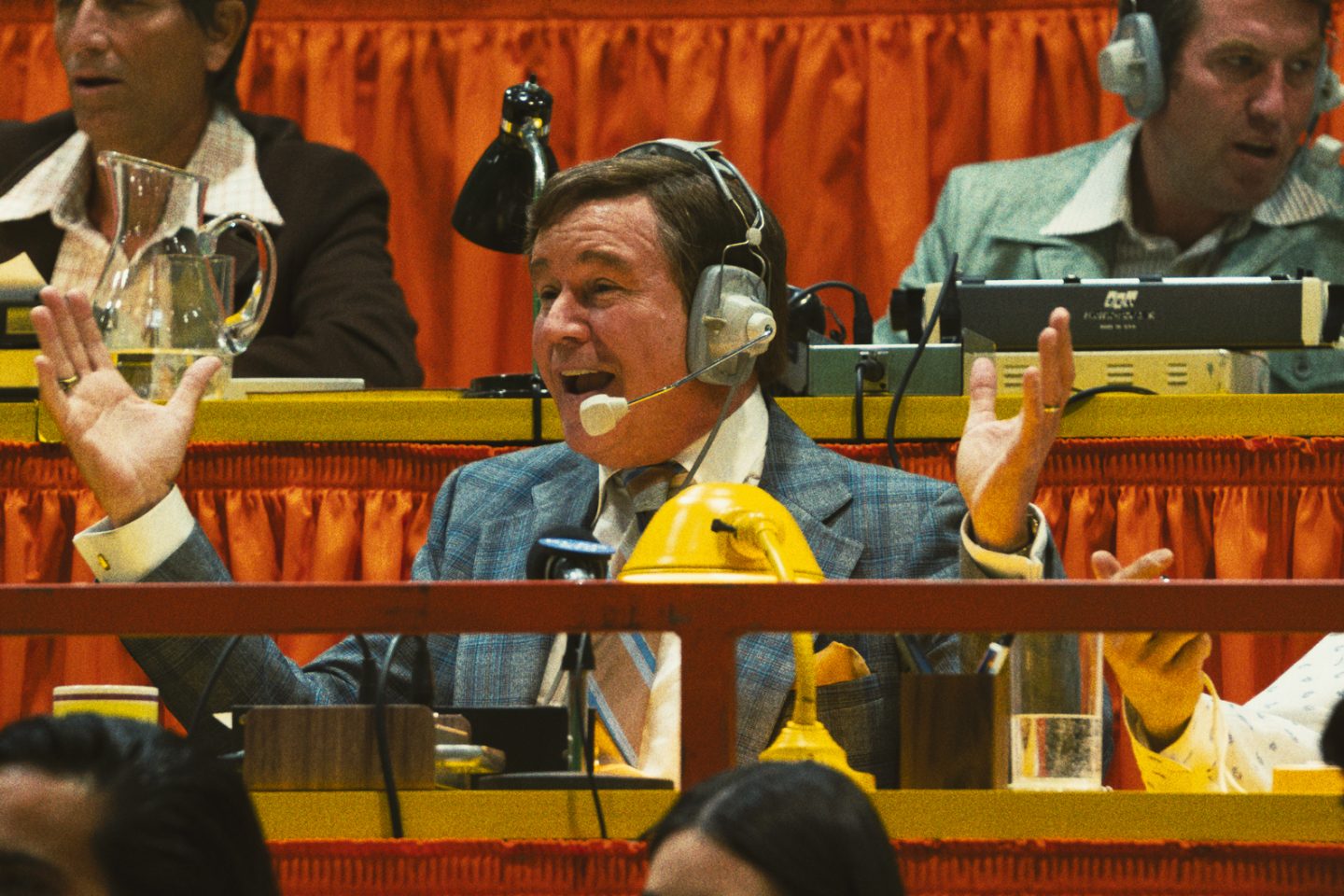
Christopher:
Seeing your play by plays on the show Spencer. They’re so precise, so spot on, and so timely. How was that handled during the production of those scenes?
Spencer:
We have an incredible team with the camera crew. In many cases where Chick would be talking for long stretches of time. I just said to the production, “you guys write this out on giant cue cards.” They put it up on cue cards, and they would put the cards on a dolly track that would go up and down the basketball court, so I would follow the action and be able to read the words. And also, the trick of it was trying to make it sound spontaneous while I was doing it.
Christopher:
How’s Winning Time bringing something new to the iconic story of the Lakers?
Spencer:
Well, I think just from Adam McKay’s perspective, when Adam McKay is attached to something, it has its own kind of creative spin. This is satire, not a documentary. We’re taking real-life characters and putting a fictionalized spin on the history of what happened between ’79 and ’85. It’s been a challenge because of how these writers have written these characters and are telling this story. You know, we’re trying to do it in a unique way, a fun way, in an entertaining way. So that’s been the challenge of interweaving all of these stories and all these storylines. There are like 22 series regulars so incorporating all of their storylines and making compelling television has been the challenge. But I think we met the challenge. Even if I wasn’t on this show, it would be a fun and compelling show to watch every week. I just love it. I’m a fan of the show myself.
Christopher:
I’ve been a photographer for most of my career. The production team and director of photography truly transport you to another time in history. Now, did you know going into production that would be the visual approach to the tell story of the Lakers?
Spencer:
I did not, and it was kind of a thrill to see. I showed up on set for the first time on the soundstage, and they had a guy with a super eight video camera, like a super eight movie camera from the old days on rollerblades, and he was rollerblading up and down the court, shooting the basketball sequences. They even used an old camera called Ikegami, a Japanese camera that gives them that grainy look and that grainy feel. Every once in a while, you’ll see it. I mean, nothing’s shot on film anymore. It’s all shot digitally.
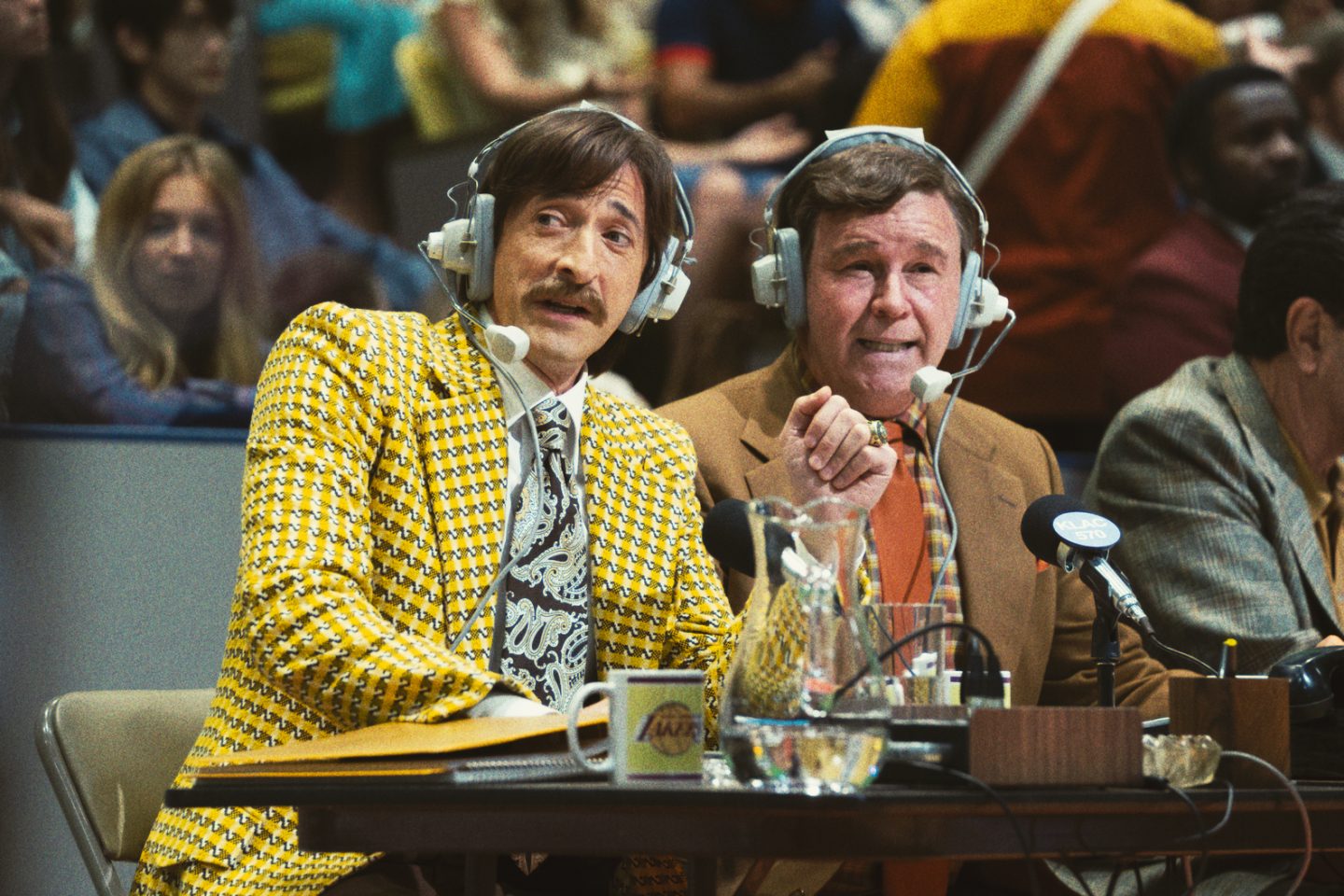
Christopher:
During the filming of Winning Time, did you have the opportunity to watch the other actors during the incredible game scenes?
Spencer:
COVID posed its challenges to us. I mean, we had to get tested three times a week. On a film or television set, you are usually hanging out with the other actors. You’re drinking coffee, and you’re telling stories. We couldn’t do any of that. We were isolated and had to keep to ourselves and our trailers. So, there wasn’t a lot of socialization going on, and a lot of socializing, I should say, going on the show. But for me, I love being on a set. I grew up on film and television sets as a kid, as the son of an actor. I spent a lot of time on set, so I love everything about it. So even when I wasn’t working, I would come onto the set and just try to watch and absorb, and I mean, getting to watch these terrific actors play basketball every day. You know, and they had basketball doubles who were fabulous athletes, so I would just wander onto the soundstage and sit and watch a great basketball game for a couple of hours if I had some time to kill before I had to go into hair and makeup. I was in hair and makeup for a good two and a half, three hours every morning. So, once I put my face on and my hair. I walk onto the soundstage with my big face shield, and I sit down, take a seat, grab some popcorn, and watch the guys play.
Christopher:
What do you feel is going to surprise people most about the show?
Spencer:
I think many people didn’t know the backstory between Magic and Larry Bird’s rivalry. Magic Johnson’s backstory, Kareem Abdul-Jabbar’s backstory. It puts a spotlight on their lives in a way that other shows and documentaries about these particular superstars has not before. So, there are some surprises. For example, I didn’t know the actor who portrays Jack McKinney, the head coach and beautifully played by Tracy Letts, is a Pulitzer Prize-winning playwright. We have two Pulitzer prize-winning playwrights in our cast, Tracy Letts and Stephen Adly Guirgis. I think we might be the only show in history with two Pulitzer Prize-winning playwrights.
Jack McKinney, played by Tracy Letts, was the coach of the Lakers before he got into his terrible bicycle accident. That is when the Paul Westhead character came in, played by Jason Segel. People will be surprised to learn that Pat Riley started as Chick Hearn’s assistant. Pat Riley was wandering around the bench for several years after he’d won a championship with the Lakers. Riley was looking for his second act in life, and he came to Chick Hearn’s office, asking for a job; and Chick gave him a shot at being his co-announcer. He became Chick’s gopher and went and picked up his dry cleaning and did errands for him. He was also his sideman. I had no idea of any of that before I started the job. Pat Riley graduates from Chick Hearn University and moves into the coaching spot when Paul Westhead becomes the head coach. As we know, Pat Riley became the assistant coach and then eventually became the Pat Riley that we all know with the slicked-back hair and the Armani suits. So, there were many things that I didn’t know going into doing my research. I think many people will be surprised by little Easter Eggs like that. We throw little tidbits of information at the audience that I don’t think they knew before.
Christopher:
Max Borenstein, the series creator, and writer, recently tweeted stating that you’re the “Mayor of our cast.” Why do you think that is?
Spencer:
I’m a bit of a social butterfly. I started putting together cast dinners with some of the writers and the other actors. So, one night, I reached out to Tracy Letts, Jason Segel, Quincy, Isaiah, Solomon Hughes, and Adrien Brody. We just got the gang together and had a dinner one night, which turned into another one and another one, and so Max very sweetly dubbed me the mayor of the cast, which is a nice honor. I like to feel like Chick was kind of the mayor of the Lakers. He was kind of a heart and soul of the Lakers, and he was kind of the glue of the team in many ways. He was a father figure to a lot of players. So, in, I guess, in a roundabout way, I’m trying to emulate Chick in that regard. By kind of being the mayor of the cast. Much the way Chick was the mayor of the Lakers.
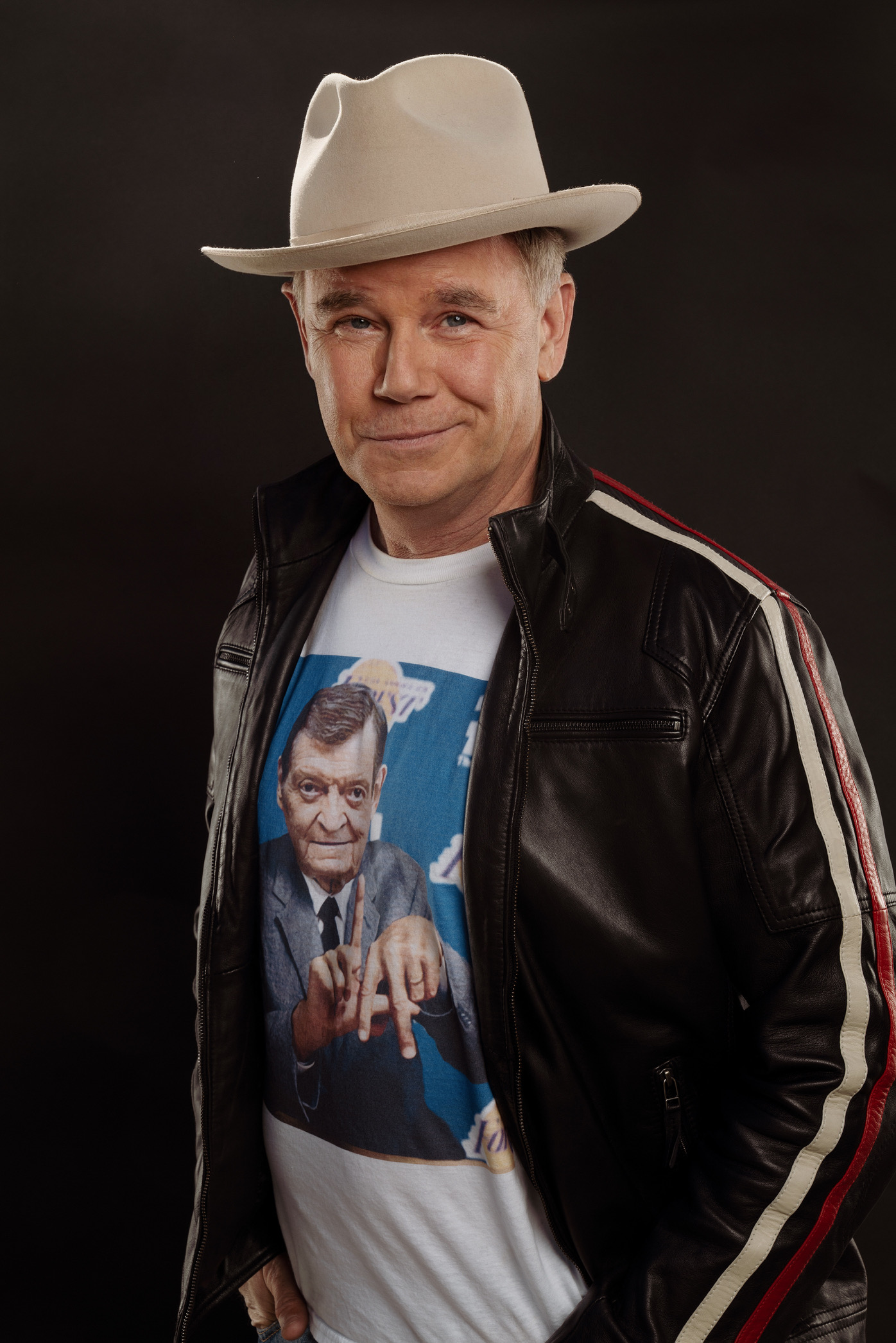
Christopher:
Spencer, what was it like growing up with your parents in the industry?
Spencer:
Wonderful and strange at the same time. My mom was an actor and an activist, and the first woman president of the labor union. She was the president of the Screen Actors Guild. I grew up coming home from school and walking into my living room and seeing Gregory Peck or Ed Asner. I mean, that was just sort of the norm for me. My father was a talent agent, and he represented actors as well. I’m a third-generation actor. My grandparents were actors. They raised my mother and aunt, who was also an actor, on a showboat on the Mississippi river in St. Louis, “The Goldenrod Showboat.” It was like being raised in the circus by a mother who was an actor, an aunt who was an actor, and my aunt’s husband, my uncle, also an actor. That was all I knew. That was normal for me, being around show businesspeople, crazy show businesspeople. I couldn’t imagine it any other way.
Christopher:
Has being an actor always been your calling?
Spencer:
I tried to resist it when I was a kid. I did theater in elementary school, high school, and college, but I don’t think I knew that I would jump into the business until I got out of college. I wondered what I was going to do when I got out of college. I worked in Washington, DC, for a couple of years on Capitol Hill. I worked for National Public Radio. I thought I would be sort of a “normal person” with a regular job for a time there. The theater just kept calling me back. I did a lot of theater in college. I went to a performing arts-based high school in Maine, a boarding school emphasizing the performing arts. So, I was always in it, always doing it, but it wasn’t a calling per se. It wasn’t something that I thought, oh, as soon as I, as soon as I get out of college, I’m going to jump into the, into the business because I grew up with watching my mother’s fortunes rise and fall. Other people in my family who were in the industry, I watched their lives go up and down. It’s a very cyclical business. It’s a rollercoaster ride. And I think I saw that, and I, and I thought, I don’t know if I want to get on that roller coaster. I can be a lot of rejection. Once I left Washington and moved to New York, I started studying with my mom’s old acting teacher, a wonderful, legendary acting teacher, Sanford Meisner, and I tried it out for a year, and that a year turned into two years. Then two years turned into seven years. And next thing I knew, I was studying with one of the great acting teachers, and I thought, oh wow, I’m really in this now, let’s give it a go. I’m still trying to give it a go, 35 years later.
Christopher:
What advice would you give to actors that have the calling to get into the business?
Spencer:
That’s a pretty broad question, but find a great teacher, study your ass off, and work and work. You have to really know your craft and hone your craft and be good at it because there’s a lot of competition out there, and it’s a tough business. As someone once said to me, “once, you have to have the height of an elephant and the soul of a butterfly. “You know you must have a thick skin to do it. So, you have to have great training and keep at it and keep training and keep studying and learn the classics and watch the classic films. Always be learning and always be striving to get better at your craft.
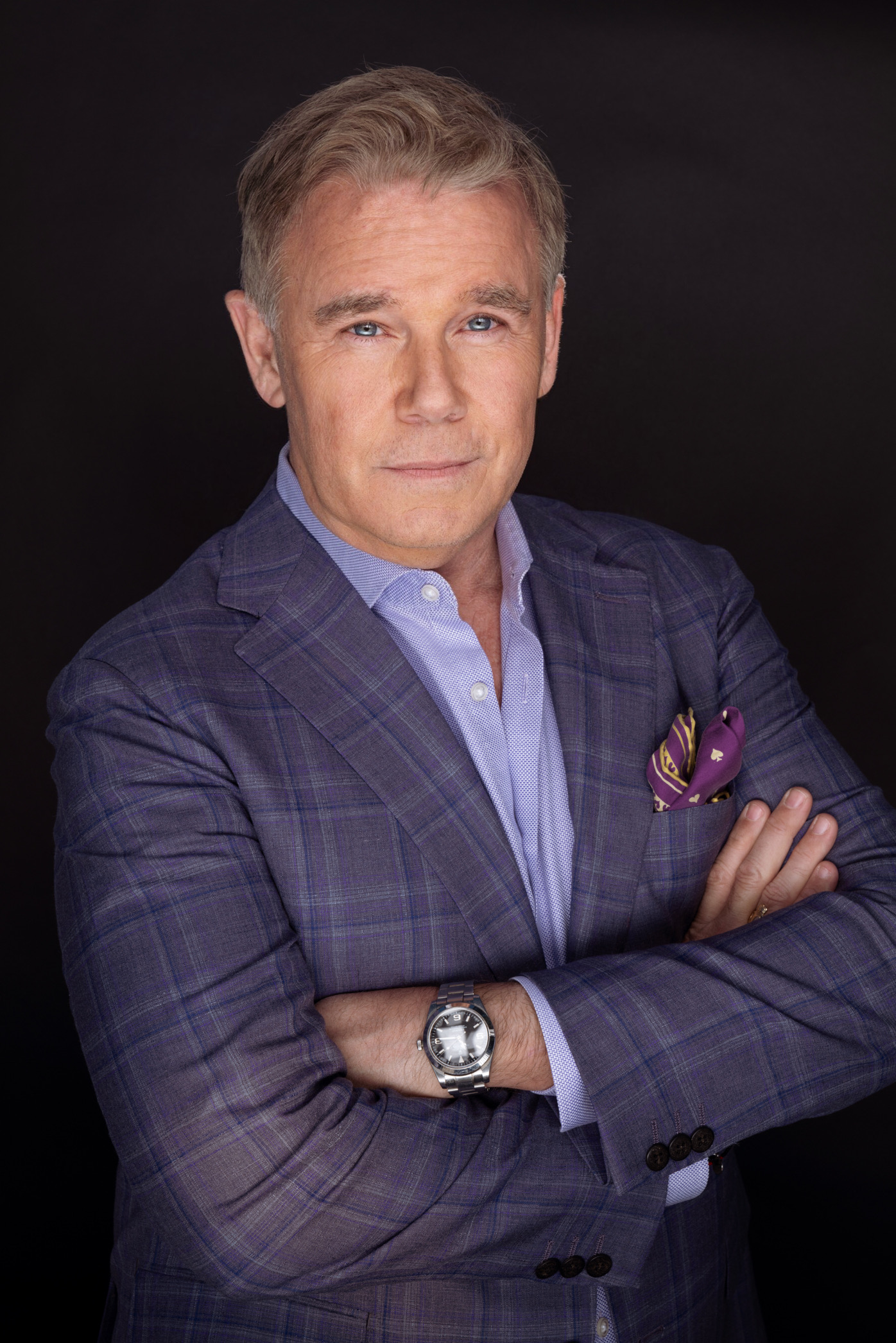
Christopher:
Regarding striving to be better at your craft, I’d love to know more about the character actors’ group you’re involved with. It sounds fascinating. How did that all come about?
Spencer:
That started with my old friend, Alfred Molina, an outstanding actor. We made plans to go out for drinks one night, and because we hadn’t seen each other for a while, he said, hey, do you mind if I bring Steven Weber along? And I said, sure, I love Steven Weber. Steven Weber called me and said, do you mind if I bring Eric McCormack along? And I said, great. I love Eric McCormack. And then it sorts of snowballed, and suddenly there were six or seven of us at the dinner table, and we kind of looked around, and we were like, wow, this is a terrific group of guys. Why don’t we do this more often? And we dubbed ourselves the CADS that night. The Character Actors Dining Society. Since then, we have added many more members. We now have Michael McKean, Jason Alexander, Kevin Pollock, Laurence Fishburne, LeVar Burton, Rob Morrow and Noah Wyle. It’s a great group. Richard Kind, who lives in New York, joins us whenever he’s in Los Angeles. We have now stopped at around 12 now because we can’t fit any more people around the table. Every character actor I know wants to be a part of this thing, and so every once in a while, if we have an open slot or somebody can’t make it, we’ll bring in a guest star and have them come in and join us for dinner. It’s a terrific group, and I just sit in awe, listening to the stories that Kevin Pollock and Michael McKean, and Jason Alexander tell. These guys are the, we’re all show business veterans, but these are some of the funniest men I’ve ever met. Michael McKean is just an absolute fountain of show business history. He knows so much minutiae about the entertainment industry and tells great stories. We sit back sometimes and sip our wine and listen to McKeon telltales, and we talk, and we talk to, we talk about stories from, from our experiences on sets, and it’s just a heck of a lot of fun!
Christopher:
What are two of your most memorable career milestones?
Spencer:
Well, I would say the first one was getting cast in the movie Public Enemies, with Johnny Depp, for Michael Mann, who’s since become somebody that I’ve worked with now with three to four times. Public Enemies, Luck, and Black Hat. It started with Public Enemies for me, and I’ve been on this hamster wheel of getting cast as the same type of guy for a while now. I called them my pantheon of pricks in suits. I was playing a lot of lawyers, a lot of bankers, a lot of like the same type of guy, just a white guy in a suit. I was making a comfortable living, working consistently, but it was not challenging me. So, when I had the chance to audition for Michael Mann’s film Public Enemies. It was a role that I didn’t think I would get cast in because it was a very “charactery” role. He was a Chicago gangster ex-boxer thug. It had so many more layers to it than anything I’d ever been given the opportunity to play. So, when I was cast in that role, I think casting directors started to see me in a different light as a different kind of actor as more of a character actor, and so it allowed me to get cast in more character-type roles. It definitely kind of changed my career trajectory to a certain extent.
I’m forever grateful to Michael for that experience because the casting director, Bonnie Timmermann, saw something in me back then that I did not see in myself. I didn’t have the confidence to think I would get cast in a role like that. I did, and it really kind of changed my life. So that was, that was one career-defining moment, I would say. The other one is the one I’m in right now, playing Chick Hearn and getting to work with Sally Field and Adrien Brody and John C. Reilly and Tracey Letts and artists like this. You look around some days, and you pinch yourself. It’s just extraordinary. I’ve been doing this a long time. I’ve gotten to work with some incredible people. One of my first films was Airforce One with Harrison Ford and Glenn Close and Gary Oldman, and that was when I was, I think, about 27 years old. And I thought, well, it’s not going to get any better than this, and some days it just gets better and better. This is sort of the pinnacle for me to work with people like this on an Adam McKay project with this caliber of actors. It’s just been such an extraordinary gift.
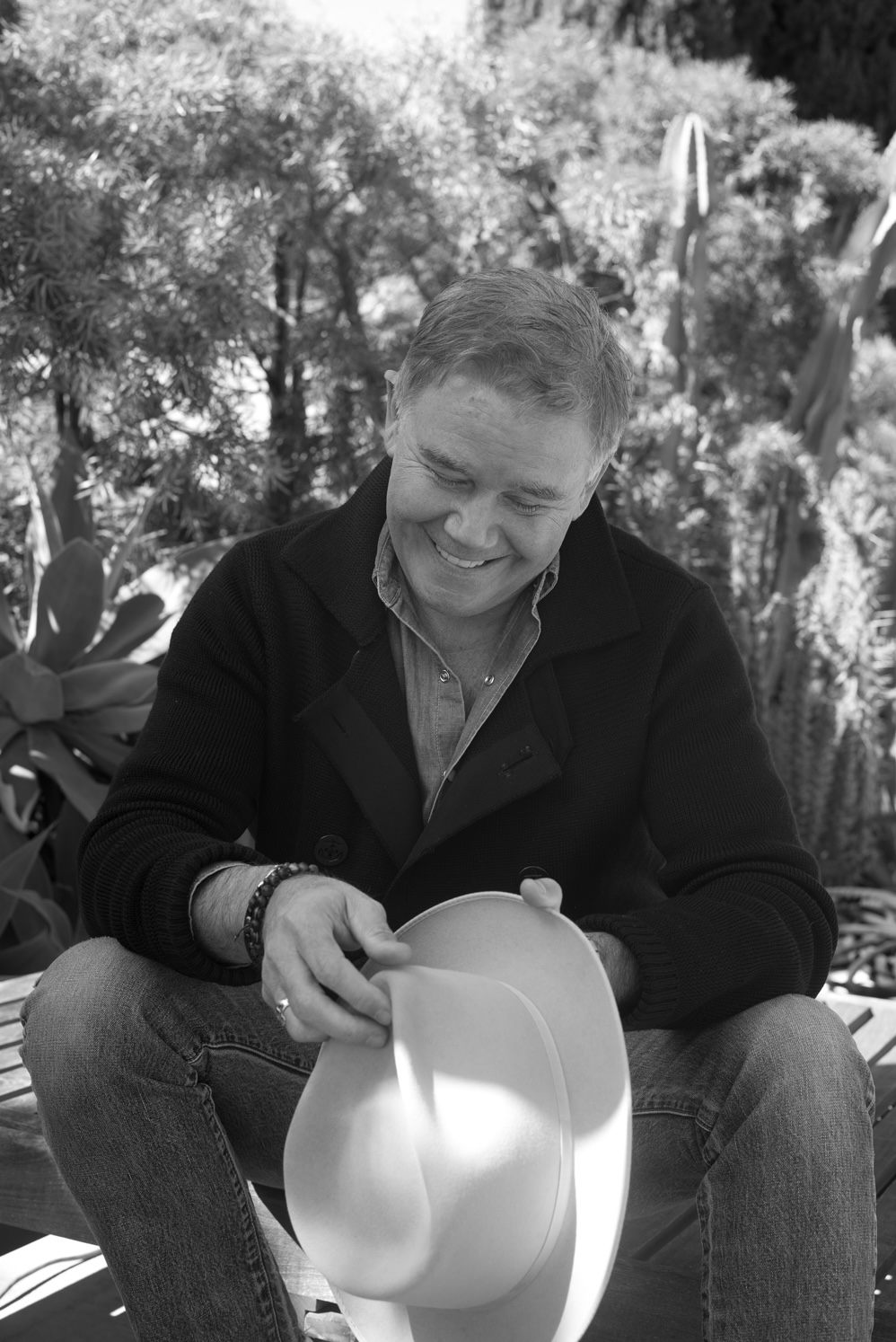
Christopher:
What inspired you to start the podcast “America 2.0”?
Spencer:
That started as a television pilot. That was written by a wonderful writer named J.S. Mayank, a terrific writer. I was invited to participate in a table read of this pilot, and at the end of the table reading, I went up to the writer J.S, and I said, listen, I hate to sound like one of those actors, but I love this pilot, I love this character. If anything, ever happens with it, would you keep me in mind? And he looked at me, and he said, “you don’t understand, I wrote this character for you. I wrote this guy with you in mind,” which was such an honor and such a lovely thing to hear. We became friends, and the pilot was sort of shopped around. It was a political drama. It was kind of a more modern day take on the West Wing. His agents said, “you know, politics is toxic right now in this, in this age of Trump, nobody wants to put a political drama on the air right now. “So, J.S. came up with the idea of turning it into a podcast, and he took the pilot, chopped it up into six 15-minute segments, retooled it, and made it into a podcast format. I jumped on board as a producer, and we cast it with a bunch of my friends. I called Laurence Fishburne and Patrick Adams, who were on Suits at the time. Kate Walsh, Steven Weber, Jack Coleman, Autumn Reeser, we just put together an incredible cast, and we made the thing throughout a couple of months, and we released it, In fall 2018. It became the number one podcast, and we became the number one arts and entertainment podcast. So that was such a that was a wonderful surprise. I’m sure having Laurence Fishburne a part of it did not hurt. We had the Suits fans, the Matrix fans, and Grey’s Anatomy fans, everybody tuning in. We had the Wings fans cause of Steven Weber. It was one of those things. It was just a bit of alchemy where all of the stars aligned, and we had a lot of fun doing it from a pilot script that was potentially going to gather dust in a drawer. J.S is an extraordinary writer and can write in any genre. He had the foresight to turn it into a podcast, and there you go. I had been producing and have produced stuff before and since that, but nothing is as fun as that.
Christopher:
What’s the best piece of advice that you’ve received?
Spencer:
I think the best piece of advice is a quote from Winston Churchill that I’ve always loved: “If you’re going through Hell, keep going. “This business can knock you down and make you want to quit. You never know what’s right around the corner. So, there’ve been times when I’ve wanted to throw in the towel. But, I persevered, and I kept at it, and I kept working on myself and my art, and sometimes it pays off. So yeah, if you’re going through hell, keep going!
Christopher:
Lastly, Spencer, what do you know for sure?
Spencer:
I know for sure that love is love.
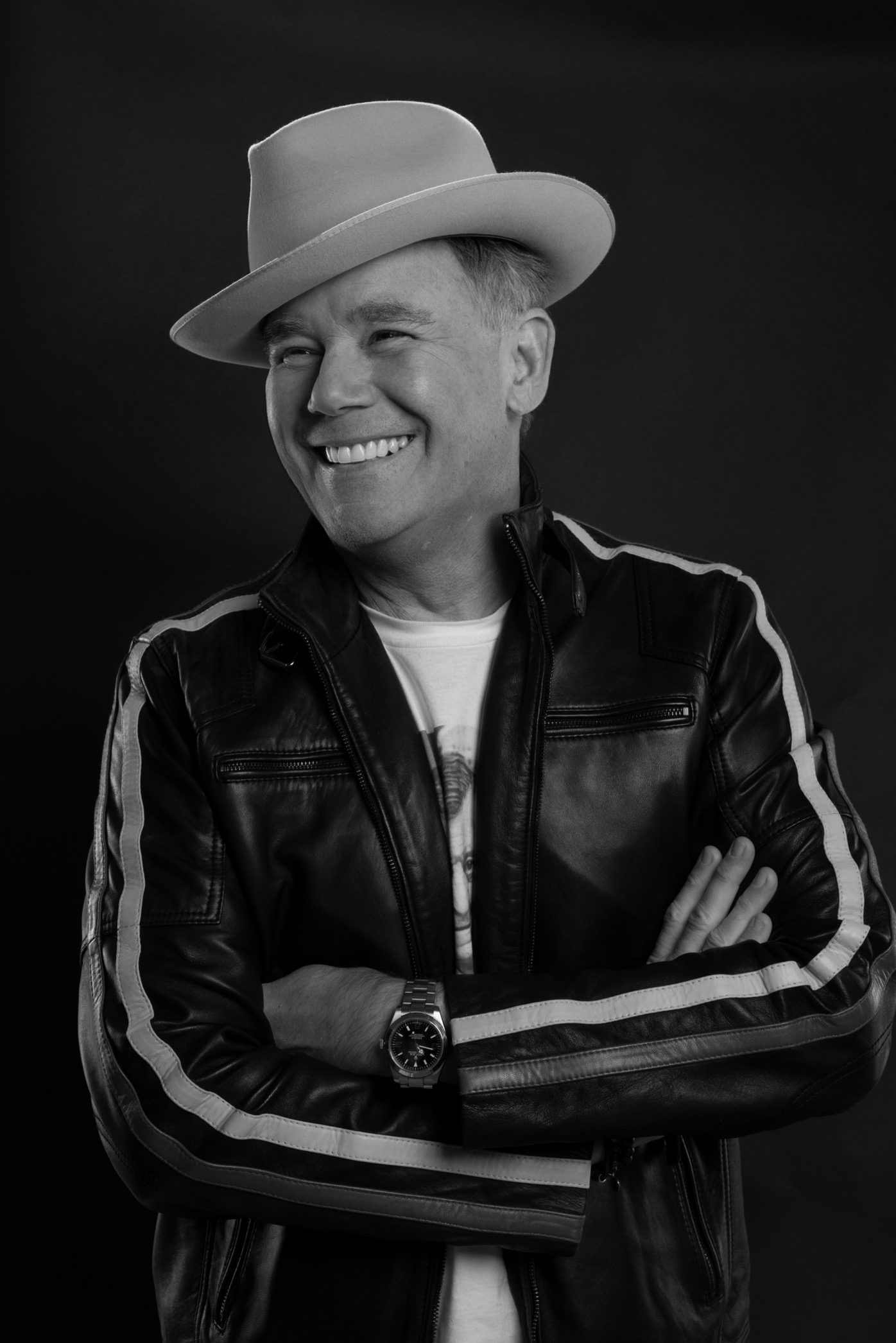
Stream the entire 1st season of “Winning Time: The Rise of the Lakers Dynasty” now on HBO Max.
Be sure to follow Spencer Garrett on Instagram https://www.instagram.com/spencergarrett1
- Comedian Matteo Lane– HIS RECIPE FOR SUCCESS - August 3, 2022
- Spencer GarrettThe Winner’s Circle - May 9, 2022
- WINTER 2021 GIFT GUIDE - December 10, 2021
